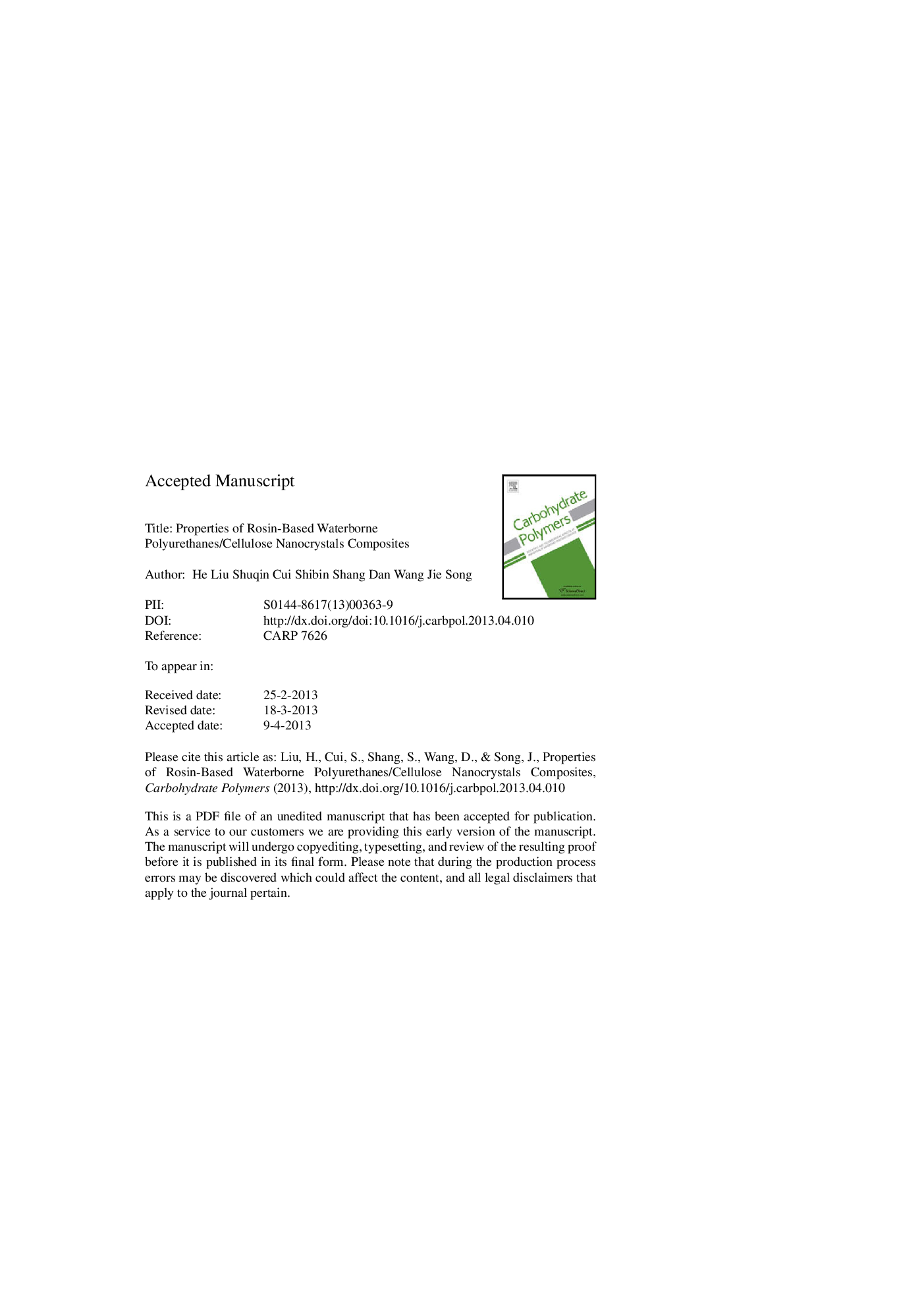| Article ID | Journal | Published Year | Pages | File Type |
|---|---|---|---|---|
| 10601527 | Carbohydrate Polymers | 2013 | 17 Pages |
Abstract
Polymers from renewable biomass are viable supplements for synthetic polymers. In this study, cellulose nanocrystals (CNs) were used as nanofillers to improve properties of rosin-based waterborne polyurethanes (RWPU). The morphology, structure, thermal, and mechanical properties of the RWPU/CNs nanocomposites were investigated. It demonstrated that CNs were compatible with RWPU and dispersed homogeneously in the polymer matrix. CNs as nanofillers improved tensile strength of RWPU significantly. Tensile strength of RWPU/CNs composite films increased from 28.2 to 52.3Â MPa with increasing CNs amount from 0 to 20Â wt%. Moreover, the thermal stability of RWPU was also improved by CNs and the glass transition temperature of RWPU/CNs decreased comparing with RWPU. This work provided a novel pathway for preparation of biomass-based WPU with excellent properties from cellulose and rosin.
Related Topics
Physical Sciences and Engineering
Chemistry
Organic Chemistry
Authors
He Liu, Shuqin Cui, Shibin Shang, Dan Wang, Jie Song,
